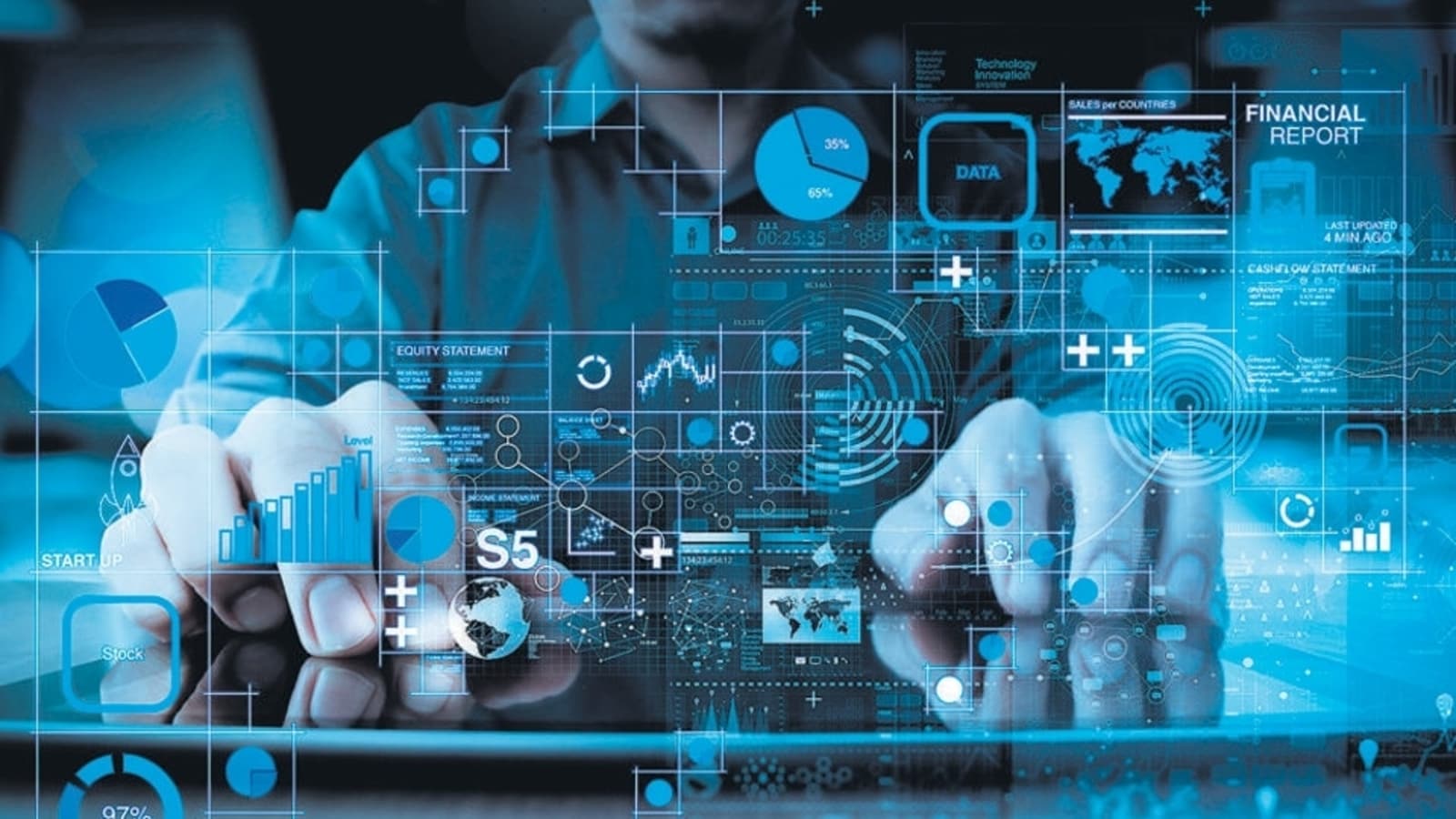Blockchain technology is expected to change the way academic data is handled and how teachers interact with students.
In today’s rapidly evolving digital landscape, the education sector is increasingly turning to innovative technologies to address longstanding challenges. Among these technologies, blockchain stands out as a powerful tool with the potential to revolutionise various aspects of education, particularly in ensuring transparency and security.

At its core, blockchain is a decentralized and immutable ledger that records transactions across a network of computers. As per Fortune Business Insights, the global blockchain technology market size was valued at USD 11.14 billion in 2022 and is projected to grow at a CAGR of 59.9% to reach USD 469.49 billion by 2030.
If we talk specifically about the education sector, as per Business Research Insights, the global blockchain market size in education in 2021 was USD 118.7 million and is expected to grow at a CAGR of 43.94% to reach USD 3.05 billion by 2030.
From traditional classrooms to eLearning and now to blended learning, education has undergone many changes. With the rapid adoption of online platforms and LMSs due to the pandemic, schools worldwide started to teach students online.
Blockchain technology is also expected to change the way academic data is handled and how teachers interact with students. The collaboration and management of academic records between students and teachers can be substantially changed by blockchain.
The application of blockchain in the education sector can be accomplished in various ways. First of all, blockchain frequently incorporates smart contracts. This can help teachers create blockchain-based courses and classes. The course will automatically start teaching once the prerequisite requirements have been met and can then proceed at its speed.
Applications of Blockchain in Education
Secure Academic Credentials
One of the most promising applications of blockchain in education is secure academic credentials. Traditionally, verifying academic credentials has been a cumbersome and time-consuming process, often relying on centralised authorities such as universities or third-party verification services.
With blockchain, academic credentials can be stored and easily accessible in digital format, allowing employers and academic institutions to verify them quickly and reliably.
Transparency in Academic Records
Blockchain technology enables the creation of transparent records of academic achievements. This includes grades, certifications, and other educational accomplishments. By recording this information on a blockchain, students have greater control over their academic records, reducing the risk of fraud or misrepresentation.
Streamlining Administrative Processes
Educational institutions often hold inefficient administrative processes, such as student enrollment, course registration, and transcript management.
Blockchain can streamline these processes by providing a decentralized platform for storing and managing student data. This not only reduces administrative operations but also enhances data security and privacy.
If we look at some challenges in traditional educational systems, they often grapple with issues related to data management, credential verification and academic integrity. Paper-based records and centralised databases are susceptible to fraud, manipulation and unauthorised access. The process of verifying credentials can be cumbersome, time-consuming, and prone to errors, leading to inefficiencies and discrepancies.
Blockchain technology also helps enable researchers, academics and institutions to work together securely and transparently. Researchers can share data securely, publish their findings, and monitor intellectual property rights (IPRs) on a blockchain.
This helps to promote innovation and collaboration while preserving intellectual property. Smart contracts can also automate the process of distributing royalties and credits. This ensures that contributors receive fair remuneration and recognition. Educational institutions must invest in research, development, and collaboration to overcome these challenges and realize the full potential of blockchain technology.
Also Read: Exploring the future: The transformative potential of blockchain technology
I strongly believe that blockchain technology has the potential to revolutionise education by providing transparency, security and integrity throughout the entire learning process. From transparent credentials and secure records management, to fighting academic fraud and promoting collaboration, blockchain offers cutting-edge solutions to long-standing issues in education.
By embracing blockchain technology, educational institutions can unlock new possibilities for innovation, trust and empowerment in today’s digital world. Blockchain in education is set to revolutionise the way educational records are created, managed, and verified. By leveraging blockchain, we can create a more open, safe and fair learning environment for learners, teachers and schools.
Therefore, Blockchain’s integration into the education sector is more than a technological upgrade; it’s a paradigm shift in how we store, share and trust academic achievements. This shift promises a more reliable, efficient and globalised educational landscape. It has immense potential and significant challenges. As we navigate these challenges, the promise of a transformed educational landscape becomes more evident.
Blockchain is not just a technological advancement; it’s a pathway to a future where education is more accessible, secure and tailored to individual needs. It’s a future where learning is a lifelong journey, open to all.
(Authored by Dinesh Kumar Poobalan, CEO & CTO, Greatify. Views are personal)
-
 Top MBA Colleges in indiaClick here
Top MBA Colleges in indiaClick here -
 Top Engineering CollegesClick here
Top Engineering CollegesClick here -
 Popular BCA CollegesClick here
Popular BCA CollegesClick here -
 List of BBA CollegesClick here
List of BBA CollegesClick here -
 Best MBBS Colleges in IndiaClick here
Best MBBS Colleges in IndiaClick here -
 Top LLB Colleges in IndiaClick here
Top LLB Colleges in IndiaClick here -
 MBA Exam ListClick here
MBA Exam ListClick here
- Blockchain
- Education
- Transparency
- Credentials
- Learning
- Research

